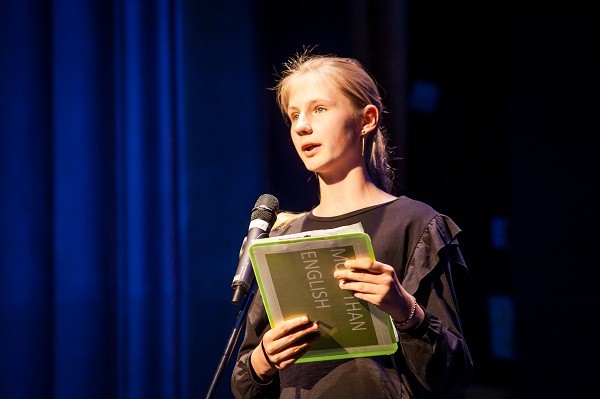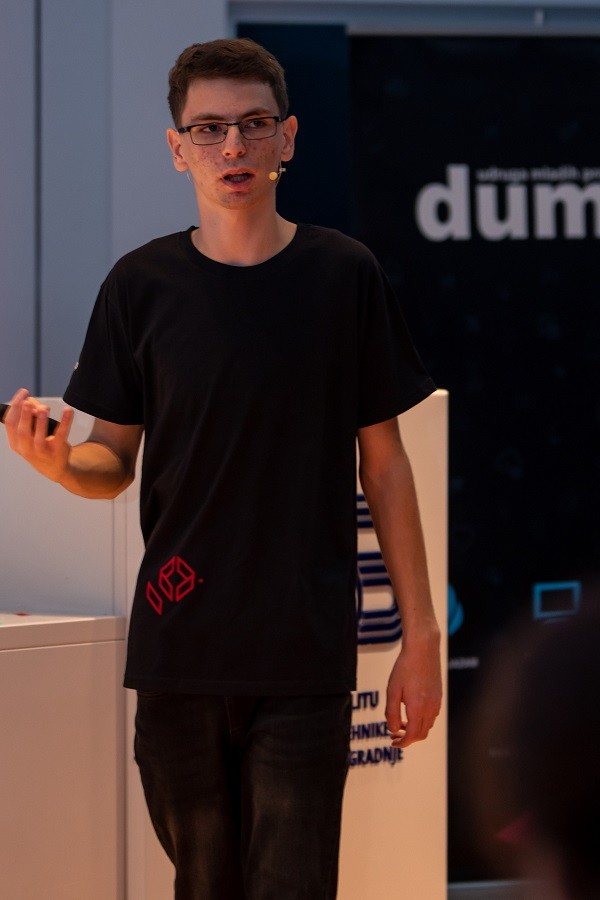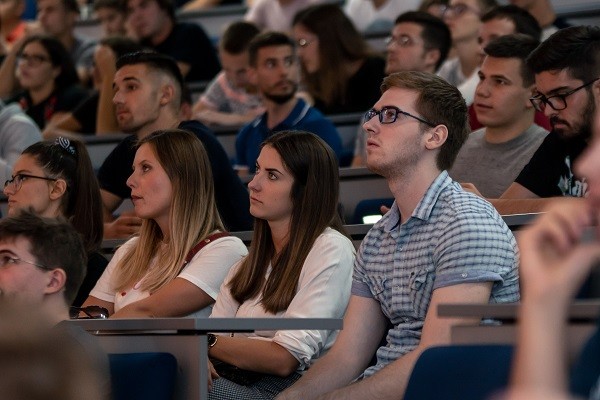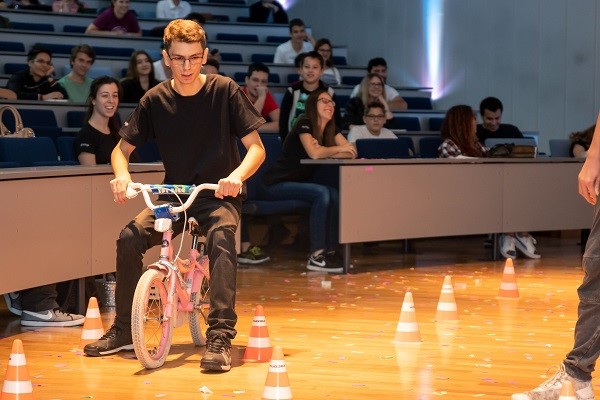News from the world’s biggest English Language Teaching Conference: IATEFL
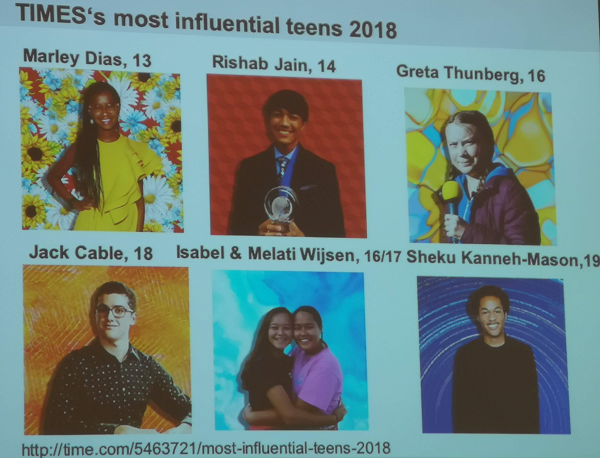
Marley Dias(13) realised that young black girls were not represented in the library in her school. So, she assembled a collection of 1000 books containing black female protagonists and distributed them to 11,000 schools and colleges.
Greta Thunberg (15) understood that climate change is the biggest problem facing humanity. Her frustration at the lack of urgency given to this issue by governments boiled over and she started a campaign of direct action encouraging students to take a day off school in protest in order to force governments to listen.
Rishab Jain (14) developed an algorithm that allows doctors to more accurately target cancer cells in the pancreas while allowing good cells to live. Yes, at 14 years old, Rishab has already made advances in the way we treat cancer.
What do we learn from this?
Never underestimate teenagers.
It was the famous educator Montessori who said that the teenage years are a “time of heightened creativity and passion.”
From the examples above, you can see that when they are given a little freedom, teenagers can achieve almost anything. From developing cancer treatments to influencing government policy to creating more inclusive education systems the power of teenagers to have a transformational impact on the world is real.
Teenagers have all of this passion and potential, however, as Annika Albrecht and Prof. Dr Carmen Becker from the Technical University of Brunswick argued at the IATEFL teachers’ conference, the reality of learning in many education systems, curricula and schools fails to harness (utilise) this teenage energy.
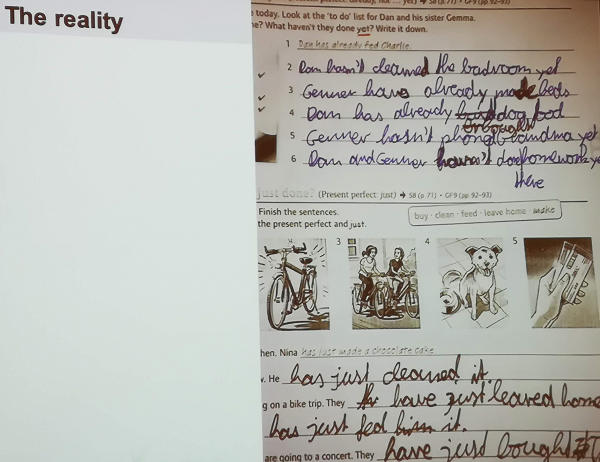
Annika Albrecht and Professor, Dr Carmen Becker, IATEFL Conference April 2019
How can we utilise teenagers’ creativity and passion in the language classroom?
At More Than English we utilise teen power in many ways:
(1) Get Ahead study options
During the academic year a lot of students are following curricula with quite narrow learning objectives, such as high school exams or the Cambridge Exams: FCE and CAE. Of course, these exams have a lot value and they encourage students to build up their English to a high level. In fact, we also offer preparation for these exams.
However, such exams also constrain (limit) teenagers. For example, the FCE speaking exam asks students general questions about their hobbies and interests: not very challenging. It asks them to compare two photographs: for what purpose? At least in the final section of the exam, students are encouraged to consider a problem, for example how to improve a town. However, that’s a pretty safe topic: generally teenagers engage more with topics that are a little more controversial, a little more ‘impactful’ and a lot more relevant.
At More Than English we give students the opportunity to break free of the limitations imposed on them by exam systems and discover just how much they can achieve with their English.
For example, in ‘Get Ahead’ Middle United Nations students explore topics such as the impact of Artificial Intelligence on humankind or whether immigration has benefits for host nations.
Another example is that in “Get Ahead” film students are challenged to use their English to storyboard a film, learn how to use camera equipment and work collaboratively in an international team.
Find out more about our Get Ahead study options here.
(2) Task based and Project Work
Another way in which we give students the opportunity to use their English in more meaningful ways is through project work during morning English classes.
Morning English classes at More Than English follow this pattern:
3 one-hour lessons a day:
- 0900-1000
1 hour – Language Input (for example from a National Geographic Course Book)
1 hour – Task / Project: (examples: debate, role play, presentation, panel discussion, research, video, exhibition, poster, STEM task)
1 hour – Writing: articles, blogs, articles, reviews, essays, reports + other texts
Tasked based lessons / Projects
The focus of these lessons is meaning.
In these lessons students have to perform a task. They have to produce something. They use their English to perform the task.
Examples of tasks: debate, role play, presentation, panel discussion, research, video, exhibition, poster, display, STEM task
The role of the teacher is to create interest, offer an example of the task and provide students with the language they need.
The theory
As Annika and Carmen, experts in pedagogy from the Technical University of Brunswick, outlined at the IATEFL teachers’ conference, such lessons have 3 stages:
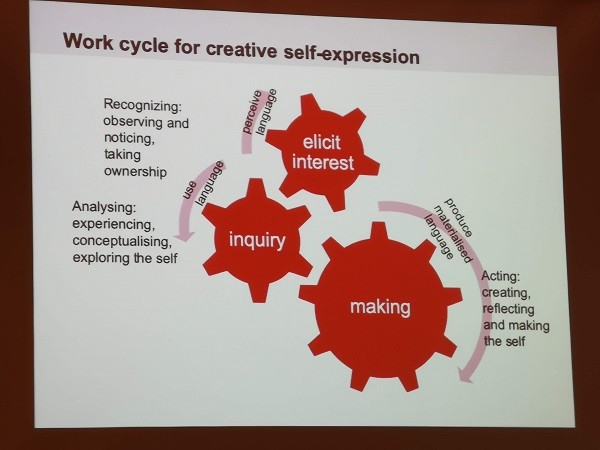
Annika and Carmen also identify a number of key benefits and we’ve added some extra ones:
Ownership
By choosing the product that they create and by negotiating within their teams how to make that product, the students are taking ownership of their own learning. They are becoming autonomous learners who are taking control of their own learning.
Student centred learning
The teacher is helping. The students are discussing, making and planning. More ‘student talk time’ means more learning.
Motivation
It is extremely motivating for students to use their English to perform a task that they have chosen.
Pronunciation
Students have to present their final product. That automatically means that they have a reason to focus on getting the pronunciation correct.
Practice
When we present something, we always want to do a good job in front of an audience. Because students know that they have to present the final product, they are very motivated to practise, practise, practise beforehand – and we all know that practice is one of the most important ingredients of successful language learning.
Confidence and sense of achievement
Presenting a product that they have worked hard on gives students a huge sense of achievement and more confidence about public speaking in the future.
Relevance
Students choose topics that they are interested in and passionate about. There are no artificial limits for their ideas.
International team working skills
Planning, discussing and delivering a final product through working with other teenagers from 18+ countries, means that teenagers are learning… more than English…!
+ They might change the world…
Meet Zvonimir who studied Speech Making, Business Challenge, Model United Nations and Shakespeare at More Than English. Zvonimir is a high school student, but here he is explaining to university students in Croatia how he and his team of teenage coders created a new more efficient system of administration for a department in the Croatian government. As we said, don’t underestimate teenagers!
Credits:
We are indebted to Annika Albrecht and Professor, Dr Carmen Becker from The University of Brunswick for their wonderful lecture at IATEFL on 3rd April 2019, which inspired this blog:
“Reforming the teenage EFL classroom: from external control to self-mastery.”
This month the teaching team from More Than English have been learning alongside 3000 other English teachers from around the world at the IATEFL (International Association of Teachers of English as a Foreign Language) conference in Liverpool.
Never underestimate teenagers
Weronika – Speech Maker
Teenage years: “a time of heightened creativity and passion.”
Blakemore, 2018
